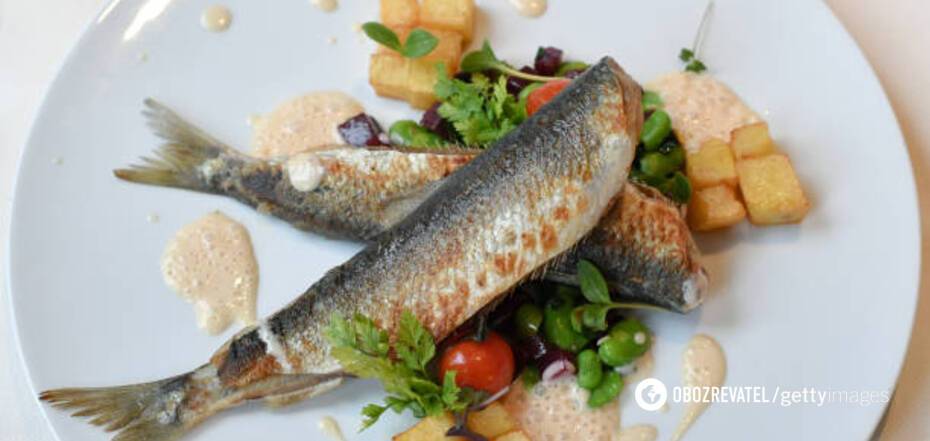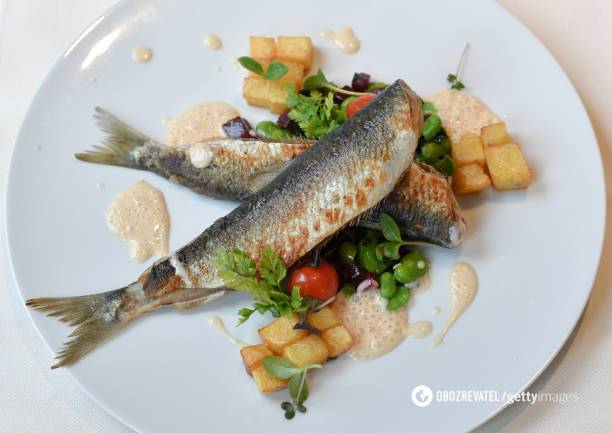LS Food
Not just sugar: a doctor named foods dangerous for diabetics and people with heart disease
Proper nutrition and the presence of certain foods in the diet can significantly reduce the risk of complications caused by cardiovascular disease and type II diabetes.
This was reported by nutritionist Vira Palamar on her Facebook page.
The doctor has compiled a list of 10 foods that can reduce the risk of death from heart disease, stroke and type II diabetes, noting that in 2012, 702,308 deaths from cardiometabolic diseases (CMD) were reported in the United States. Scientists estimate that 45.4% of these deaths were associated with suboptimal consumption of 10 foods.
Too little, too much, or just wrong
Not enough
According to the nutritionist, insufficient consumption of the following foods causes a certain percentage of deaths from CMD:
- Nuts and seeds,
- Omega-3 fats,
- vegetables,
- fruits,
- whole grains,
- polyunsaturated fats instead of saturated fats or carbohydrates.
Too much of it
Palamar also emphasized that an excess of the following foods in the body causes a certain percentage of deaths from CMD:
- salt,
- processed meats (sausages, frankfurters, smoked meat, etc.),
- sugar-containing beverages,
- red meat.
According to the nutritionist, the following foods should definitely be in the diet:
Nuts and seeds: goal = 30 g per day. Add to whole grain cereal, and salads, or eat as a separate meal.
Fish (preferably sea fish ): goal = 350 g per week. Grilled or baked fish for dinner.
Vegetables: Goal = 5 servings per day (1 serving = 1 cup of raw or 1/2 cup of cooked vegetables). "Steam, grill, or roast vegetables to retain all the nutrients, or eat them raw. Fill at least half of your plate with vegetables," the doctor emphasized.
The nutritionist also reminded us that fresh fruit is extremely important for the body.
"Fruit: goal = 4 servings per day (1 serving = 1 medium fresh fruit). Try to eat fruit at every meal or between meals. Frozen fruit is also a good option," the doctor emphasized.
Speaking about whole grains, the doctor noted that the consumption rate is: 4 servings per day (1 serving = 1 slice of whole grain bread or 1/2 cup of whole grain porridge). "Try different whole grains, such as barley, millet, quinoa, bulgur, brown rice, or millet," Palamar advised.
Speaking about fats, the nutritionist suggested using polyunsaturated fats instead of saturated fats or carbohydrates: the goal = replace at least 11% of calories from saturated fats or carbohydrates with calories from polyunsaturated fats (the equivalent of about two tablespoons of healthy oil for a person consuming 1800 calories a day). "Try healthy oils such as canola or olive. Eat a small spoonful of nut butter instead of a slice of white toast for lunch," the doctor suggested.
Palamar also announced a list of foods whose consumption, in her opinion, should be minimized:
"Salt: goal = less than 5 grams per day. Limit consumption of processed foods, fast foods, and condiments such as soy sauce, bottled salad dressings, and barbecue sauces.
Processed meat: Goal = 0 servings per day. Put chicken or tuna in your sandwiches instead of sausage, ham, salami, or hot dogs. Or try plant-based fillings such as beans or nut butters," the doctor emphasized.
The nutritionist also reminded about the need to give up sugary drinks. "The goal is 0 servings per day. Instead of sweetened coffee and tea or sugary sodas, fill a large pitcher with water with slices of oranges, lemon, lime, or berries. Tea, coffee, and plain water are also great substitutes," the doctor said.
Palamar also noted that it is necessary to stop eating red meat, reducing the portion of the product to 150 grams per week. "Use red meat more as a side dish than as a main course (for example, a small amount of lean meat in a salad)," the nutritionist suggested.































